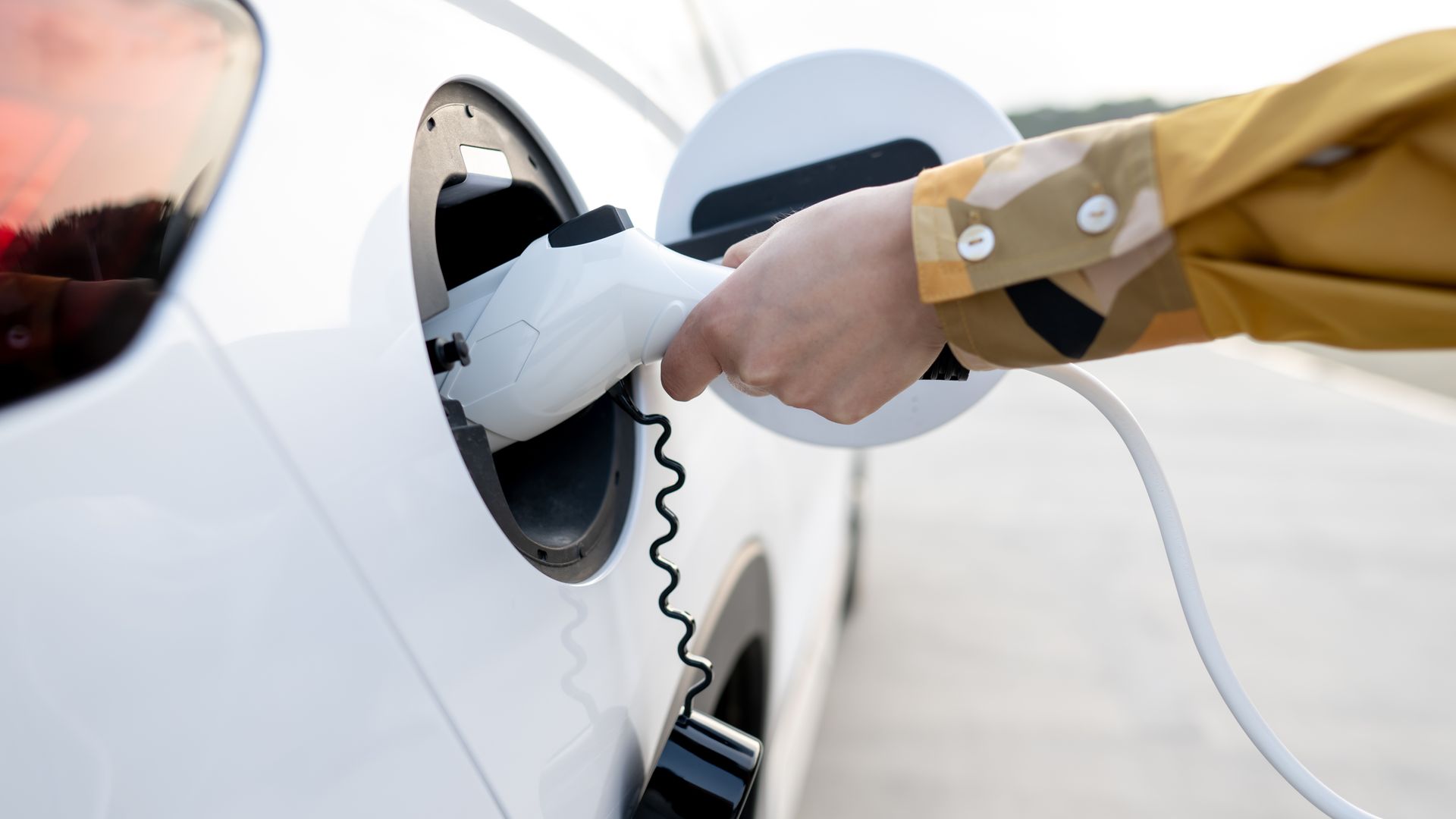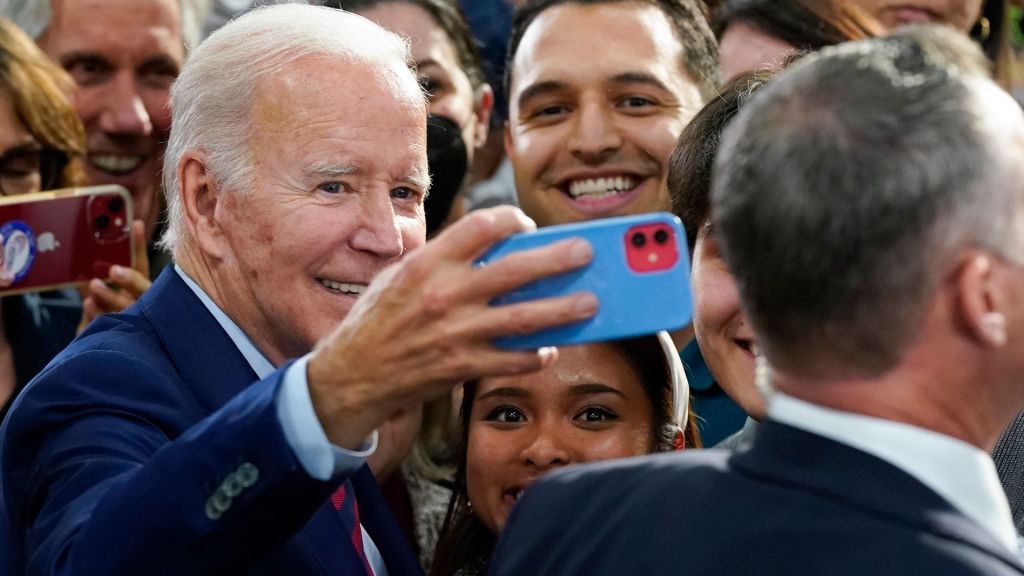
MAHMOUD BENNETT: IF YOU’RE LOOKING FOR A NEW CAR, YOU’RE NOT ALONE. AUTO SALES JUMPED NEARLY 25-PERCENT FROM THIS TIME LAST YEAR.
BUT LIKE DYLAN FANS IN THE 60s, MANY ARE STILL HESITANT TO GO ELECTRIC.
TIMES, THEY ARE A-CHANGIN’, AND MORE E-VS SELL EVERY YEAR, BUT CONCERNS ABOUT INFRASTRUCTURE, “RANGE ANXIETY” AND HIGH COSTS IN A QUESTIONABLE ECONOMY MEAN DEMAND IS A SLOW TRAIN COMIN’.
LAUREN FIX | CAR COACH REPORTS FOUNDER: “Right now, the average price of an electric vehicle is about $66,000, the average price of a gasoline powered vehicle is $49,000. Now, yes, you can buy cars more expensive, and cars less expensive, whether it be electric or gasoline powered, the price is one factor, but then you go to get your insurance because you’d have to get car insurance. And you find the insurance policy is substantially more, almost twice as much as it is for gasoline powered. So now the cost of the vehicle is higher, the cost of insurance is higher, and you still have to pay for charging.”
LAUREN FIX IS AN AUTOMOTIVE ANALYST. SHE SAYS THE REASON INSURANCE IS HIGHER FOR EVs IS BECAUSE OF REPLACEMENT COSTS.
FIX: “Don’t let anyone kid you there’s no maintenance because the tires wear out quicker. And you can there’s moving parts, there’s going to be maintenance. And that’s not just some of the fluids, you may have eliminated the engine, but you still have other components that need to be repaired. And when you total it all up, it takes about 10 years to recoup the cost of an electric vehicle over a gasoline powered vehicle. And people that are smart are looking into the numbers and saying this may or may not work for me.”
JAMES UROMARSO | VICE PRESIDENT UNION PARK AUTOMOTIVE GROUP
0:50ish “The vast majority are still going to choose an ice vehicle, a gasoline engine vehicle, because it’s less expensive in the price, and then that translates to lower monthly payments, whether you’re buying or you’re leasing. And that’s really a big driver for the vast majority of customers. They’ve got a budget, a monthly budget for their car payment, and they’re trying to stay within that.”
BENNETT: JIM URSOMARSO IS THE VICE PRESIDENT OF UNION PARK AUTOMOTIVE GROUP IN WILMINGTON, DELAWARE. A STATE THAT IS PUSHING CAR DEALERS TO SELL MORE ELECTRIC VEHICLES. AND EVEN PLANS TO PHASE OUT GASOLINE-FUELED NEW CAR SALES BY 20-35.
JIM: “We as dealers, we don’t have anything against or for electric cars, we want to provide a transportation solution that our customers want. And it just so happens that the vast majority of our customers and our friends and our neighbors, look at buying a car, that what works best for them is a car that’s less expensive. And that will take them where they need to go when they need to get there without having to worry about stopping for an hour or three hours to charge and whether the charging station will be open or available. And whether it’ll be working, I think about 20% of the charging stations in the country, at any given moment, are all flying with technical issues. And we experienced that too. In our dealership we have a lot of charging stations that we use for our clients and for our own vehicles as we prep them. And it’s a challenge to keep them up and running.”
BENNETT: ‘RANGE ANXIETY’ – THE DREAD OF RUNNING OUT OF JUICE BEFORE FINDING THE NEXT CHARGING STATION – REMAINS A BIG ISSUE FOR POTENTIAL E-V BUYERS.
WHILE THE NATIONAL DEVELOPMENT OF CHARGING STATIONS IS ONGOING – THE INFRASTRUCTURE COMES UP SHORT IN THE FACE OF GROWING DEMAND.
SHARMILA RAVULA | CHIEF COMMERCIAL OFFICER CHARGENET STATIONS: “One-third of the charging stations that are out there usually are not working correctly or the charging the chargers that are available in the public domain. What we are focused on is excellent customer service, we want to ensure that everything is working in real time. And we have the support infrastructure to ensure that every charger that we deploy out there is always working.”
BENNETT: SHARMILA RAVULA IS THE CHIEF COMMERCIAL OFFICER FOR CHARGENET STATIONS. THE STARTUP IS ON A MISSION TO DEMOCRATIZE E-V CHARGING.
RAVULA: “We are focused on bringing fast electric vehicle charging in very convenient locations to the entire population of the US in places they live and visit frequently with a very narrow focus on quick serve restaurants because these are ubiquitous across the entire US.”
BENNETT: CHARGENET STATIONS HAS ONE STATION CURRENTLY OPERATING BETWEEN TWO POPULAR FREEWAYS IN SAN FRANCISCO. THEY PLAN ON HAVING 25 STATIONS OPERATIONAL BY THE END OF NEXT YEAR. AND THOUSANDS OF STATIONS ACROSS THE U-S BY 2035. THE GOAL WOULD ALIGN WITH THE BIDEN ADMINISTRATION’S AIM OF HAVING 50-PERCENT OF ALL NEW VEHICLE SALES BE ELECTRIC BY 20-30.
BUT SOME EXPERTS WE SPOKE TO SAY IT WILL NEVER HAPPEN.
FIX: “There is no way that you’re going to see electric cars increase to that substantial percentage by 2030. Or 2050… Will we be all electric? Not a chance. And the perfect proof? Is California here today in 2023. You will, they can’t even support all the electric grid because there’s not enough wind and solar power. And they did nuclear power, coal and natural gas which California doesn’t want to do.”
IN DELAWARE, URSOMARSO SAYS HE SEES HIS CUSTOMERS PUSHING BACK.
URSOMARSO: “We’re hoping that Delaware does not adopt the ZEV requirement, the electric vehicle requirements. If they do, I think it’s not going to go over well, unfortunately, because of the cost issue, it’s just that the average person in Delaware is not going to be very happy that they now must spend a lot more to get a vehicle. That’s not what they’re looking for. / We’re trying to explain to people the tax increase issue. That’s what it really is, if you’re required to buy something, and it’s more expensive. That’s it, that’s sort of a tax increase. So, we’re trying to explain that to people in Delaware so they can see what the impact is going to be.”
BENNETT: E-V COMPANIES ARE SEEING CONSISTENT YEAR-OVER-YEAR GROWTH. IN 2022, MORE THAN 750-THOUSAND NEW ALL-ELECTRIC CARS WERE REGISTERED IN THE U-S. THAT’S 57-PERCENT MORE THAN IN 2021.
ACCORDING TO MARKLINES – AN AUTOMOTIVE INDUSTRY PORTAL – SALES ARE EXPECTED TO GROW BY ANOTHER 35-PERCENT THIS YEAR, BUT THEY REMAIN A SMALL PART OF THE TOTAL U.S. AUTO SALES.
WITH LAWMAKERS CALLING THE END OF THE LINE FOR GAS-POWERED VEHICLES IN COMING DECADES, COSTS AND INCENTIVES WILL HAVE TO ALIGN FOR CUSTOMERS TO MEET THOSE BENCHMARKS.






